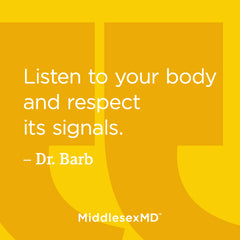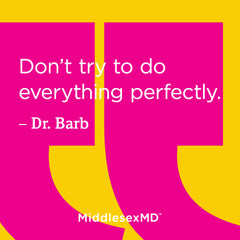According to the experts, the three most important things you can do to avoid cancer are to maintain a healthy weight, to exercise regularly, and to be smart about your diet. All three are interconnected, and none of them is easy, especially if achieving them requires confronting and changing lifelong habits.
Luckily, these happen to be the most important things you can do to avoid all kinds of disease and to enjoy a high quality of life as well. (Not to mention having the strength and stamina for better sex.)
 Weight control has two parts: energy in and energy out—the number of calories (energy) that you ingest every day relative to the calories you burn in daily activity. But metabolism and calorie recommendations change with age and stage of life, so a moderately active 36-year-old mom needs about 200 calories per day more than a 65-year-old, post-menopausal woman.
Weight control has two parts: energy in and energy out—the number of calories (energy) that you ingest every day relative to the calories you burn in daily activity. But metabolism and calorie recommendations change with age and stage of life, so a moderately active 36-year-old mom needs about 200 calories per day more than a 65-year-old, post-menopausal woman.
So unfair.
I’m sure you’ve read the gospel of good nutrition: Eat a variety of fresh fruits and vegetables, whole grains, modest servings of fish, chicken, and some red meat, very limited amounts of salt, fats, sugars, and processed carbohydrates, such as those in white bread, pasta, and pastries.
Diet is complex and the interaction of many foods in the human system isn’t easy to study nor is it well-understood. Credible connections between cancer and a single food, vitamin, additive, or supplement require multiple studies over a period of time. So the correlations are rarely clear and straightforward, and lots of fad diets and “magic bullet” vitamins and supplements are debunked over time. For example, no research supports antioxidant supplements to reduce cancer risk.
The best approach is to follow the general guidelines for good nutrition established by the ACS and other groups. People who prepare a variety of fresh foods at home and who limit empty calories in sweets and sugary drinks, fats in chips and fried foods, and excess calories and unpronounceable additives in heavily processed foods are more likely to maintain a healthy weight and to avoid illness and disease, including cancer.
According to the American Cancer Society, “A dietary pattern that is rich in vegetables, fruits, poultry, fish, and low-fat dairy products has been associated with a reduced risk of breast cancer in observational studies.”
That said, a few causal links about specific dietary habits and cancer have been established:
- Alcohol consumption increases breast cancer risk. “Compared with nondrinkers, there is a 10 percent to 12 percent higher risk of female breast cancer associated with each drink per day,” according to the ACS. One alcoholic drink per day is the recommended limit for women. One. Any kind of alcohol.
- Processed meats are linked to “modest but significant” increases in various cancers. This includes bacon (ouch!), sausage, lunch meat, hot dogs. Red meats should also be limited.
- Fresh fruits and vegetables are beneficial for many reasons, but diets that contain a lot of fresh produce tend to carry a lower cancer risk. There is some indication that caretenoids, a substance found in dark, leafy greens and colorful vegetables, such as sweet potatoes and carrots, slightly reduces the risk of breast cancer. The ACS recommends 2.5 cups of fresh produce daily.
Environmental pollution is embedded into our daily lives, and it is impossible to avoid. Some, such as radon or dioxin, are known carcinogens, while the cancer-causing status of many, many others hasn’t been determined.
“Many pollutants in the environment have biological effects, so even in the absence of specific information linking these chemicals to diseases it is not safe to assume that they are benign,” said Dr. Larry Norton, deputy physician-in-chief for Breast Cancer Programs, Sloan Kettering Cancer Center.
A few simple steps to reduce environmental exposure makes sense.
- Test your drinking water and consider a filter, if necessary. All filters aren’t created equal: some just filter chlorine while others eliminate heavy metals and specific chemicals. Here’s objective information from the gold standard of testing outfits (the NSF).
- Buy organic—sometimes. The ACS makes no recommendation for the safety of organic over non-organic foods. However, there is intuitive sense in buying organic options of specific foods that are known to be otherwise laced with pesticides and agricultural pollutants. Every year, the Environmental Working Group (EWG) publishes a list of the “Dirty Dozen”—products with the highest level of contaminants. (Sadly, strawberries top the list this year.) Consider buying organic in these categories—or grow your own!
- Avoid plastics labeled #3, #6, and #7, which are known to leach harmful chemicals like BPA into food and water. Don’t microwave food in plastic containers.
- Reduce the impact of stress and physical exhaustion. Modern stressors take their toll on our cells and make us less resistant to illness and disease. Take time to decompress, do yoga or some other exercise, meditate. Don’t overcommit or try to do everything perfectly. Listen to your body and respect its signals.
There’s no pill to keep you cancer-free. Personally, however, I find it very hopeful and motivating that I can make lifestyle choices that will not only improve my quality of life dramatically but will make me more resistant to disease and illness as well.
 Exercising regularly and eating healthfully isn’t easy, but the effects are holistic and powerful. As Chris Crowley, co-author of the Younger Next Year series, says bluntly, “The most important thing you can do is work out—pretty hard—six days a week until the day you die. Got to quit eating garbage, too.” ‘Nuff said.
Exercising regularly and eating healthfully isn’t easy, but the effects are holistic and powerful. As Chris Crowley, co-author of the Younger Next Year series, says bluntly, “The most important thing you can do is work out—pretty hard—six days a week until the day you die. Got to quit eating garbage, too.” ‘Nuff said.
 Dr. Barb DePree, M.D., has been a gynecologist and women’s health provider for almost 30 years and a menopause care specialist for the past ten.
Dr. Barb DePree, M.D., has been a gynecologist and women’s health provider for almost 30 years and a menopause care specialist for the past ten.


0 comments